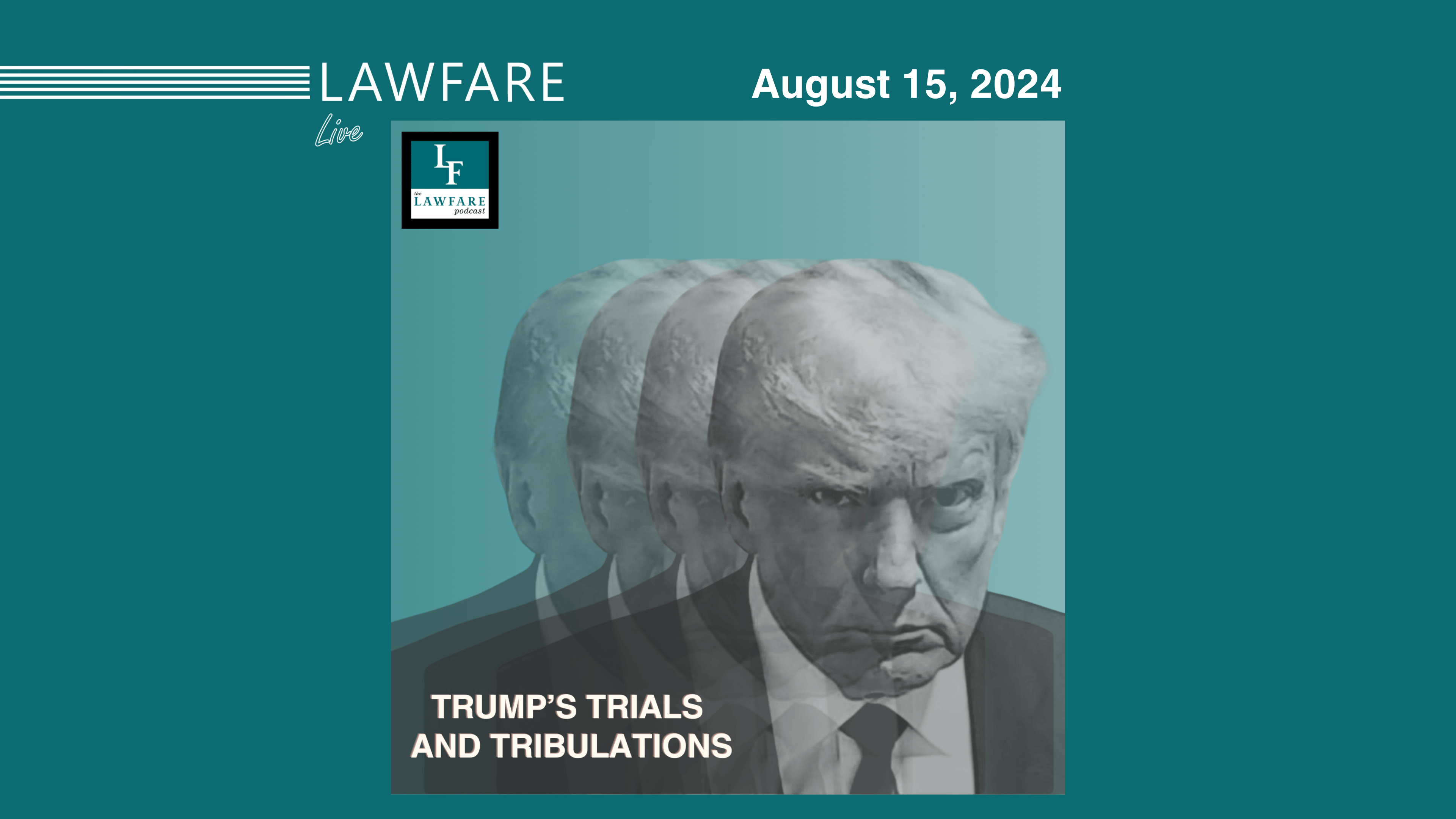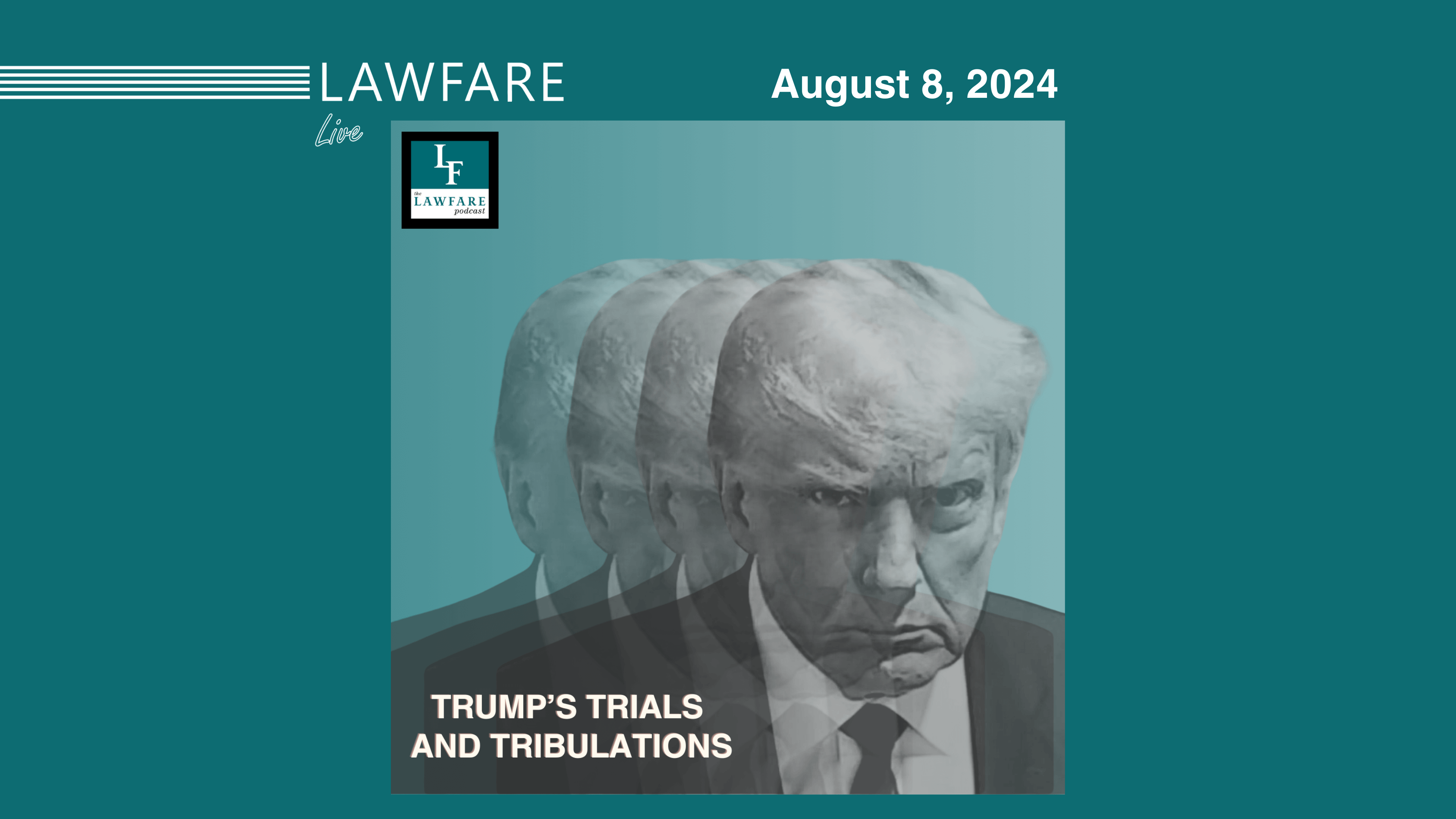Supreme Court Rules in Fischer v. U.S.
Published by The Lawfare Institute
in Cooperation With

On June 28, in a six-to-three ruling, the Supreme Court found that to prove a violation of Section 1512(c)(2), the government “must establish that the defendant impaired the availability or integrity for use in an official proceeding of records, documents, objects, or other things used in an official proceeding or attempted to do so” in Fischer v. United States.
The Court’s decision reverses that of the D.C. Circuit’s, which had adopted a much broader interpretation of the statute.
At issue in the case was the charge of corruptly obstructing an official proceeding under 18 U.S.C. § 1512(c)(2). Joseph Fischer, an alleged Jan. 6 rioter, was indicted on seven charges, including one count of obstruction of an official proceeding under 18 U.S.C. § 1512(c)(2) in 2021. Fischer later filed a motion to dismiss several of the charges against him, including the count under § 1512(c)(2), arguing that the statute “does not criminalize the obstruction of legislative action by Congress” and that any “alleged obstruction of the certification of the Electoral College vote is simply outside the scope” of the statute.
On March 15, 2022, U.S. District Judge Carl J. Nichols granted Fischer’s motion to dismiss his obstruction charge. The judge’s ruling essentially found that the government could not charge Fischer with corruptly obstructing an official proceeding under § 1512(c)(2). The government subsequently appealed the decision before the U.S. Court of Appeals for the D.C. Circuit.
On June 13, 2023, the D.C. Circuit reversed Nichol’s decision, with Judges Florence Y. Pan and Justin R. Walker, finding that the district court’s interpretation of the obstruction statute was too narrow in its application to only a “document, record, or other object.” Pan, writing for the court, found that the word “otherwise” in the statute unambiguously applies to “all forms of corrupt obstruction of an official proceeding, other than the conduct that is already covered by §1512(c)(1).” The majority ruled that the government’s broad interpretation of the statute “encompassing all forms of obstructive acts” including but not limited to documents, records, or other objects is “unambiguous and natural, as confirmed by the “ordinary, contemporary, common meaning” of the provision’s text and structure” and can therefore be applied in the government’s many cases against Jan. 6 rioters. Judge Gregory Katsas dissented. The D.C. Circuit panel then stayed the ruling pending the final disposition of Fischer’s petition for writ of certiorari before the Supreme Court, which the court ultimately granted on Dec. 13, 2023.
This ruling has significant potential implications for hundreds of other Jan. 6 rioters, who have been charged with and/or convicted of the same obstruction statute.
You can read the Supreme Court’s decision here or below:




